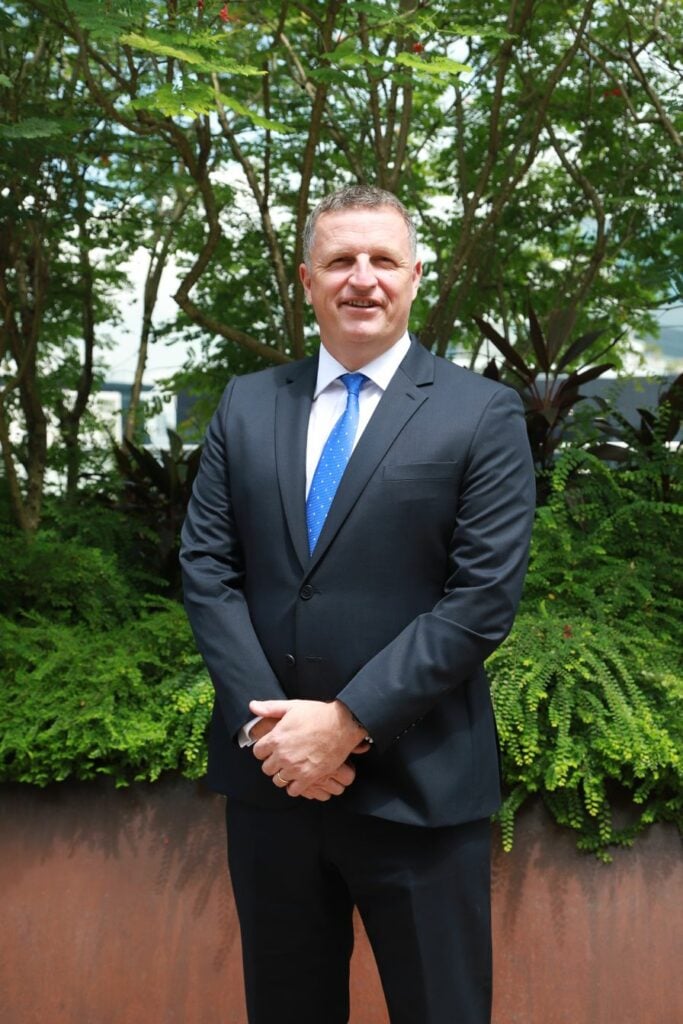Trust the Experts – how to navigate university application processes as an international parent

Parenting isn’t easy, and as time passes only seems to get harder. Subjects we once thought we could help support our children with become inaccessible to the point where we think they are being conducted in a new language, and teaching methods seem so far removed from our own experience that we wonder if we actually went to a decent school at all. Then comes the next step, life after school.
For the international parent the choices and prospects can be salivating, bewildering, troublesome and almost always expensive. With two daughters now at university here are a few thoughts from that perspective and as an educational leader.
Trust the experts!
‘Just because you went to university doesn’t make you an expert’ isn’t the most delicate way of introducing the notion of trusting the experts but that is exactly what you need to do. The university landscape is huge, complex and constantly changing. It is common for schools to have four or more full time university guidance counsellors who spend any time away from the students researching the myriad offerings. Courses, campuses and admissions require an expert eye. Use it and trust it.
For most parents their university days are now well behind them. Parents aged 40 were at university in the late 1990s before the iPhone existed, when IBM were still making home computers and the Toyota Prius was in the process of being launched. Universities have changed, and have been part of the social changes that have so impacted us all. Facebook wasn’t founded until 2004 at Harvard and it and many other things have changed the way educators and students view the world. As a consequence, try to avoid the ‘my day’ conversation at all costs. Useful perspective it may be, but as advice upon which to build applications it is not great.
University rankings
Just one example of this is the way in which over the last twenty years, and especially through COVID, some universities have really improved (or not…). In the US this is often in reference to the US News rankings, and Northeastern University enjoyed a rapid rise up the rankings over recent years putting it firmly on the map for the discerning counsellor. Rankings are another article in themselves but they are a useful guide as long as reinforced by inside knowledge often gained only by visiting the institutions. As a Head I have been doing this since 2017, and all great counselling teams will have a well organised routine of visits to keep abreast of the movers and shakers.
Develop a target list
Mentions of the US sends many parents scurrying for cover as the fees can be excruciating, but I would also argue that ruling out countries other than your own can be a mistake. Counsellors will have good knowledge of financial aid and scholarship programmes, and my visits have reinforced to me that the quality of the institutions is broadly remarkable. The UK is often a safe destination for many families, and I can see why, as the application process is rather more streamlined and funding though not cheap, is at least presently common in structure. However, also be brave enough to look at the growth of international courses in the Netherlands or Sweden. Great institutions are broadening their appeal.
Conclusion
There is much more nuance that can be brought to all the points above, and put simply this will only be gained by building a trusting and timely relationship with the school counselling team. Your own research is helpful too, but perhaps even more helpful is to gently guide children to keep as many options open as you can along the way. As students cross transition moments in all schools (to iGCSE, A Level or IBDP in our case) there is a great deal of information to explore and here it is useful to read the small print to ensure that possible pathways are not cut off. Schools will guide you at this point but maybe don’t have sight of a possible specialism that might have been a childhood dream and something that needs to be taken account of when selecting pathways. To be clear both IBDP and A Level are excellent pathways for almost all countries, but making sure that each child is set up for selecting the right subjects is important.

At the ‘keeping options open’ stage, parental influence is mightily useful, but then once you’ve achieved that, the following choices should be the students’. By all means guide, gently suggest maybe even offer conversations and experiences through friends or colleagues but please resist mapping out a future that your child has no say in. The turmoil this causes is one thing, but rather more prosaically, students on this path make uniquely disappointing interviewees for the top universities as they are unable to speak with the passion of a genuinely passionate applicant, and the effort in forcing a pathway is thus wasted.
Parenting is hard. Teenagers change their mind, can be capricious and deeply frustrating. They need you and your experience as parents. They need the unconditional love that supports them through the ordeal and allows last minute swerves. They need you to trust the experts to support those professionals so that they can superbly do for your family what they have been doing each day through long and distinguished careers. So, your children need you, but not in the way you might be thinking.
Good luck.
Chris Seal, Head of Tanglin Senior School.

